News
ECOWAS Parliament Proposes Legislation On Waste Management
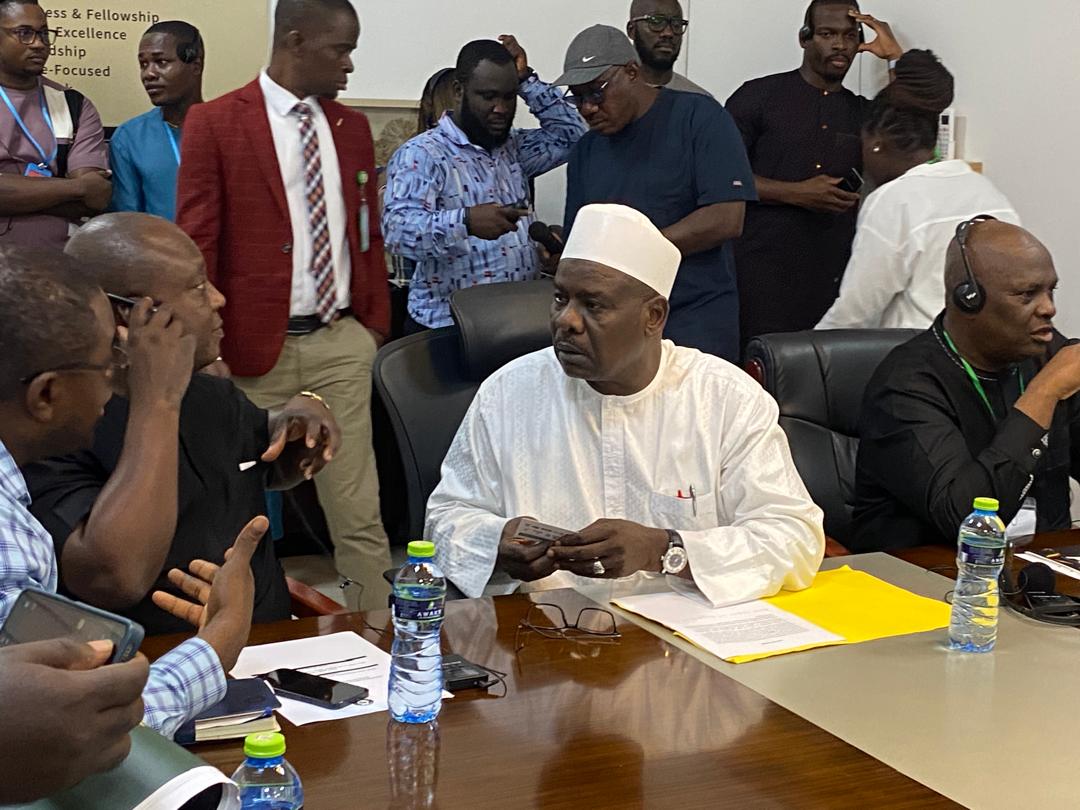
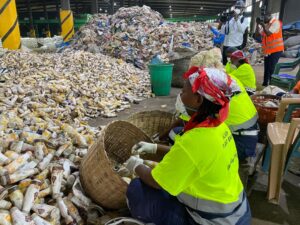
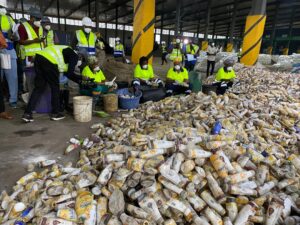
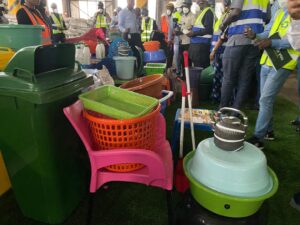
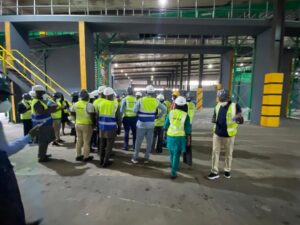
News
Francophone Ambassadors, Nigeria Unite To Fight Against Climate Change
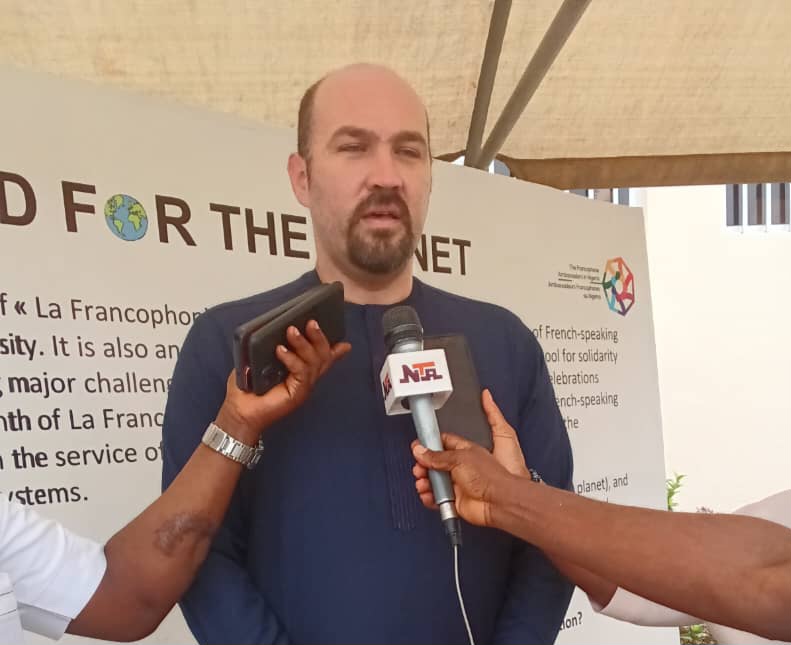



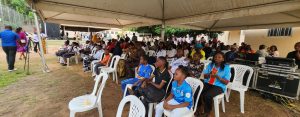
News
Gunmen abduct two senior LG workers, three others

Some senior officials of the Kwara State Local Government Service Commission have been kidnapped by gunmen along the Omu-Aran/Ilorin Road.
The victims were abducted on Friday evening.
Those kidnapped are: the Head of the Legal Department of Oke-Ero Local Government, Elizabeth Arinde, and the Head of Personnel Management of the council, whose name could not be immediately confirmed.
It was gathered on Saturday night that the two senior administrators were among seven individuals kidnapped at Corner Eleyin along the Omu-Aran/Ilorin Expressway while returning to Ilorin, the state capital, for the weekend on Friday, April 25, 2025.
The incident occurred at about 5:45pm where five gunmen ambushed the two private vehicles before leading the passengers into the bush.
The Kwara State Police Command has confirmed the incident.
This was contained in a statement signed by the Police Public Relations Officer, SP Adetoun Ejire-Adeyemi, on behalf of the Commissioner of Police, Adekimi Ojo, on Saturday.
The statement added “The Kwara State Police Command confirms a kidnap incident reported at about 5:45 p.m. on Friday, 25th April 2025, at Eleyin village via Isanlu-Isin. It was reported that about five armed men blocked the highway, stopping two private vehicles, forcefully taking all occupants to an unknown location.
“Following the report, the command, in collaboration with the military and vigilantes, launched a swift operation, leading to the successful rescue of two victims, Ganiyu Ajayi and Kolawole Adeyemi.
“Efforts are ongoing to rescue the remaining five victims and apprehend the perpetrators.
“The command has intensified security measures across the area, including aggressive bush combing, strategic patrols, and intelligence-driven operations to prevent further occurrences”
News
Army Chief condemns beating, harassing civilians in military uniform says, it’s wrong

The Chief of Civil-Military Affairs (Army), Major General Gold Chibuisi, has condemned the harassment and assault of civilians unlawfully wearing military uniforms, stressing that while such acts are illegal, the Nigerian Army does not support violence against offenders.
Speaking during a media chat with Defence correspondents on Saturday night in Abuja, Maj. Gen. Chibuisi said that although it is against Nigerian law for non-military personnel to wear military uniforms, soldiers must act professionally and lawfully when handling such cases.
“I’m surprised that in most briefs we give in our programmes, we always talk about this uniform issue because it keeps recurring. It’s against the law of the land. If you are not in the armed forces, please don’t use our uniform, whether you love it or not.
“But that’s one part of it. Let people stop it. The other part is what we do, what our troops do when they see somebody dressed in a military uniform. You’re supposed to just get the person to remove it, arrest, and hand it over to the police, basically for persecution. All these other things that come with it are not right. And we are doing sensitisation on them.”
He said many soldiers had been sanctioned for assaulting Nigerians who wore military camouflage.
” Those that we find and there is evidence that they did that, we always sanction them sternly. And we’ll continue to do that, ” Chibuisi said.
He appealed to citizens to avoid wearing military uniforms illegally, noting that respecting the uniform is an important part of strengthening national security and building trust between the military and the public.
Chibuisi noted that criminals increasingly exploit military uniforms to commit crimes, making it harder for civilians and security agencies to identify genuine soldiers.
“Currently, there are a lot of criminals using military garb to perpetrate crime. If people keep dressing like that, how do you differentiate between a criminal and a genuine soldier?”
He urged families and communities to help with sensitization at the home level.
“If somebody you know is not in the military comes out in the morning, and he wants to jog or drive somewhere wearing our uniform, you should tell him not to, “he said.
Chibuisi also reminded the public that the Army belongs to the people and should be seen as part of their families, not as distant or fearsome figures.
“There is no army that doesn’t want itself to be seen as working for the people. We are the Nigerian Army. The Nigerian people own us.”
As part of efforts to foster better understanding, the Army, he said, is strengthening its sensitisation campaigns both internally among troops and externally to the wider public.
“We are fine-tuning the conduct of our personnel.
“And I believe as we keep interacting, the relationship will continue to improve, ” he said.
-

 News14 hours ago
News14 hours agoDSS arrests Army major for planning unrest in Delta
-

 News14 hours ago
News14 hours agoFCT minister, Wike announces new appointments
-

 Politics14 hours ago
Politics14 hours agoSee list of APC Delta stakeholders holding meeting in Abuja on power sharing formula with Oborevwori
-
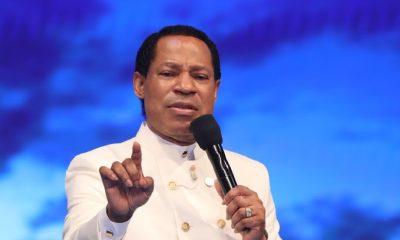
 News15 hours ago
News15 hours agoCOVID-19 Vaccine Killed Pope Francis, says Pastor Oyakhilome
-
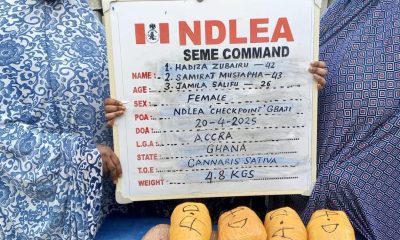
 News8 hours ago
News8 hours agoNDLEA storms Lagos hotel, recovers N1.042billion illicit drug consignments(Photos)
-

 News15 hours ago
News15 hours agoUK Tories mull replacing Badenoch as party leader after poor ratings
-
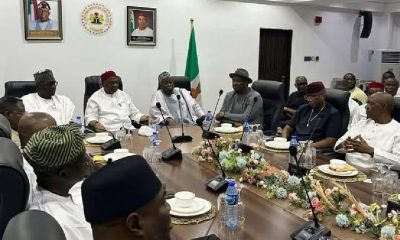
 News14 hours ago
News14 hours agoOborevwori absent as Delta APC leaders meet with Uzodinma in Abuja
-

 News6 hours ago
News6 hours agoGunmen abduct two senior LG workers, three others





